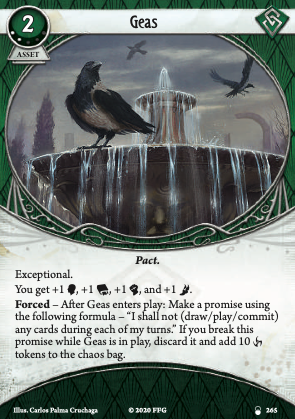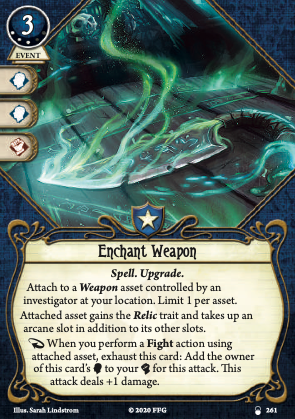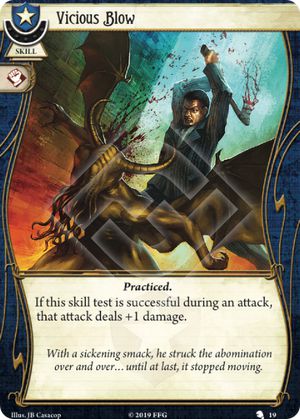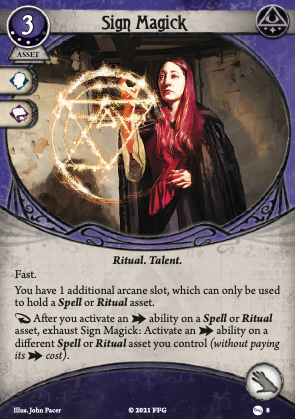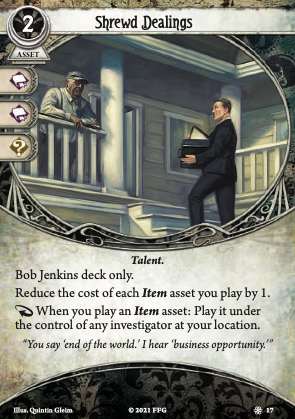
The Good, the Meh, and the Ugly:
The Good: A dollar off all items? Fantastic. It's doesn't even exhaust. Between this and Bob's free play-item action, you've got a mini Ever Vigilant forever.
The Meh: The second bit seems neat; in practice it hits the same barriers as Teamwork as you mess with other deck's plans for their limited Slots. Slotless items sidestep this, so here's hoping this cycle includes more things like Pills, Smokes, Booze... More Booze... uh...
...wow. Bob may be more of a bootlegger than an actual bootlegger.
The Ugly: SO SWINGY. Bob REALLY wants this in his opening hand. Get it anywhere from mid-game on, and you're probably just committing it for an investigate. And to my knowledge, there's literally no tutor that'll help. It feels wasteful to ignore, but risky to count on, sort of like Wendy's Amulet which you can at least find in a Backpack.
(EDIT: Building a Bob deck and realized that L3 Lucky Cigarette Case is an excellent tutoring option available to him, both for this and more or less anything else.)
+++
So, tl;dr... make friends with your local seeker!
